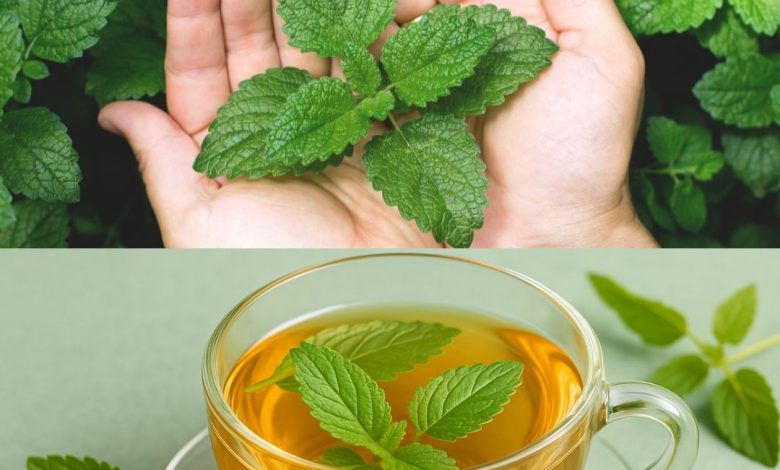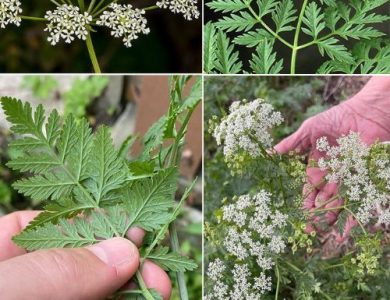Mint Leaves: A Natural Remedy to Cleanse the Liver and Improve 8 Unknown Health Issues

Introduction
Mint has been valued for centuries for its medicinal and culinary properties. Among its many benefits, it stands out for its ability to support liver health and improve various health conditions. In this article, we will explore in-depth how mint leaves can cleanse the liver and address eight lesser-known health issues. Additionally, we will provide a detailed recipe for preparing mint tea and how to consume it properly.
Table of Contents
- Properties of Mint
- Benefits of Mint for the Liver
- Eight Health Issues Mint Can Improve
- How to Prepare Mint Tea
- Precautions and Considerations
- Conclusion
Properties of Mint
Mint leaves (Mentha spicata or Mentha piperita) are rich in bioactive compounds such as menthol, rosmarinic acid, flavonoids, and tannins. These components give mint anti-inflammatory, antioxidant, antimicrobial, and hepatoprotective properties.
Benefits of Mint for the Liver
The liver is one of the most vital organs in the human body, responsible for detoxifying the blood, producing bile for digestion, and storing nutrients. Mint leaves can contribute to liver health in the following ways:
- Liver Detoxification: Mint stimulates bile production, helping detoxify the liver by facilitating toxin elimination.
- Reducing Inflammation: The anti-inflammatory compounds in mint, such as rosmarinic acid, help reduce liver inflammation, which is crucial for preventing liver diseases.
- Protection Against Oxidative Damage: Mint’s antioxidants protect liver cells from damage caused by free radicals, supporting cell regeneration.
Eight Health Issues Mint Can Improve
- Digestive Problems: Mint is known to relieve digestive disorders such as irritable bowel syndrome (IBS), indigestion, and nausea. Its ability to relax the muscles of the gastrointestinal tract can ease spasms and promote healthy digestion.
- Headaches and Migraines: Menthol in mint has analgesic and soothing effects, which help reduce the intensity of headaches and migraines.
- Respiratory Problems: Mint has decongestant and expectorant properties, which can relieve symptoms of colds, flu, and other respiratory conditions.
- Stress and Anxiety: Mint has a relaxing effect on the nervous system, helping to reduce stress and anxiety. Inhaling its aroma can also have calming effects.
- Bad Breath: Thanks to its antimicrobial properties, mint is effective in combating bad breath and maintaining good oral health.
- Skin Health: Topical application of mint can soothe skin irritations, rashes, and itching. Its anti-inflammatory properties also help treat acne.
- Menstrual Cramps: Mint can relieve menstrual cramps due to its muscle-relaxing and analgesic effects.
- Allergies: The anti-inflammatory compounds in mint can help reduce seasonal allergy symptoms, such as allergic rhinitis.
How to Prepare Mint Tea
Making mint tea is simple and can be an effective way to enjoy its health benefits. Here’s a detailed recipe:
Ingredients:
- 1 handful of fresh mint leaves (about 10-15 leaves)
- 1 liter of water
- Honey or lemon (optional, for taste)
Instructions:
- Wash the fresh mint leaves thoroughly to remove any dirt or residue.
- Boil one liter of water in a pot or kettle.
- Once the water is boiling, turn off the heat and add the mint leaves.
- Cover the pot or kettle and let the tea steep for 10-15 minutes.
- Strain the mint leaves and pour the tea into a jug or thermos.
- If desired, add honey or lemon slices to enhance the flavor.
How to Drink It:
- Frequency: For optimal benefits for the liver and other health issues, it is recommended to drink mint tea twice a day, preferably one cup in the morning and another at night.
- Duration: You can consume the tea regularly for 2-3 weeks. After this period, take a one-week break before resuming consumption.
- Temperature: Mint tea can be consumed hot or cold, depending on your preference. Both forms are equally beneficial.
Precautions and Considerations
Although mint is generally safe for most people, there are some considerations and precautions to keep in mind:
- Allergic Reactions: Some people may be allergic to mint. If you experience symptoms such as itching, rashes, or difficulty breathing, stop consuming mint and consult a doctor.
- Gastrointestinal Issues: In some cases, mint can worsen gastroesophageal reflux disease (GERD). If you have this condition, it is best to avoid mint or consult a healthcare professional.
- Pregnancy and Breastfeeding: While mint is safe in culinary amounts, consult a doctor before consuming large amounts of mint tea during pregnancy or breastfeeding.
- Medication Interactions: Mint may interact with certain medications. If you are taking medications regularly, consult your doctor before adding mint tea to your daily routine.
Conclusion
Mint leaves offer a wide range of health benefits, especially in supporting liver function and improving various health conditions. Preparing mint tea is an easy and effective way to incorporate this beneficial plant into your daily life. With its anti-inflammatory, antioxidant, and relaxing properties, mint not only helps detoxify the liver but also alleviates digestive issues, headaches, respiratory problems, stress, and more.
Always consider the mentioned precautions and, if necessary, consult a healthcare professional before starting any new health regimen. With proper use, mint tea can be a powerful ally for your overall well-being





